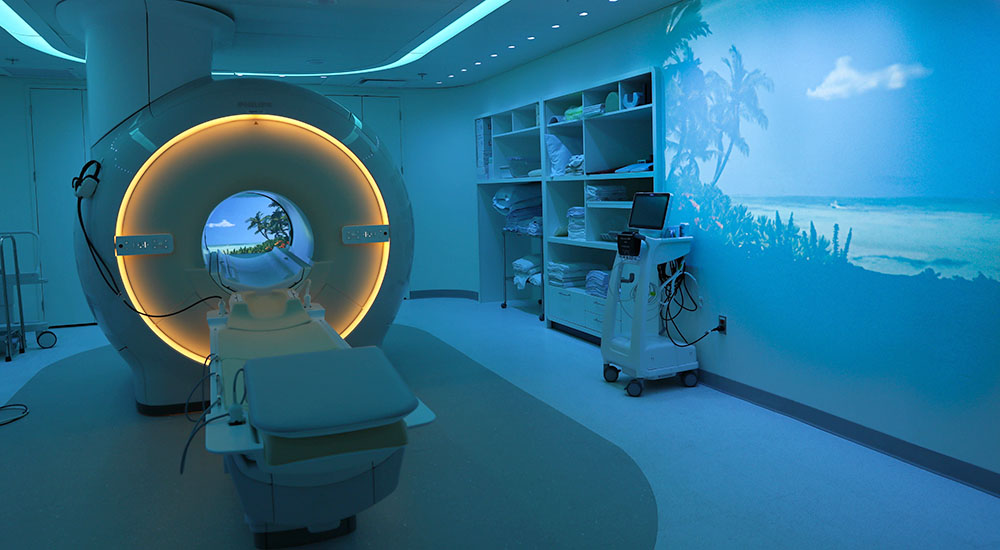Getting a Magnetic Resonance Imaging (MRI) scan can be stressful, but patients in need of one at Veterans Health Care System of the Ozarks (VHSO) will now have a different experience thanks to the installation of a Philips Ingenia 1.5T Omega.

The Philips Ingenia 15.T Omega is the new MRI machine for Veterans at the VA Health Care System of the Ozarks.
Approximately 40% of patients experience a medium to high level of stress during an MRI exam. This stress often leads to exam intolerance, aborted procedures and straight refusals.
The Philips Ingenia 1.5T Omega produces an ambient experience that aims to reduce this stress on patients while undergoing an MRI exam.
Reduces stress, increases efficiency
The Omega improves patient satisfaction and increases efficiency by having fewer exams to reschedule with a physician-prescribed sedative.
Its display shows a peaceful, serene scene of their choosing with calming background sounds to help soothe their mind and take the focus from the typical loud MRI sounds while staring at a blank space wondering “How much longer will this take?”
Veteran and VA employee Louis Martin chose a South American scene and watched palm trees sway, coconuts fall and boats sail by during his most recent MRI.
“I got an MRI last week and it was extremely calming before it even started,” he said. “Watching the ambient light change made me completely relaxed.”
More room inside scanner than older machines
The new scanner has been redesigned to maximize available space inside the scanner, providing more room than the older machines.
The new digital interface leads to better images acquired in a shorter scan time, and the high output gradient amps provide for better images.
With enhanced technology, VA Ozarks strives to offer Veterans the best care available – and for years to come.
Crystal Davis is a public affairs officer at the Fayetteville VA Medical Center.
Topics in this story
More Stories
Veterans learn to combine mindfulness with the challenge of climbing.
The program provides physical rehabilitation through telehealth, improving and sustaining physical function for older Veterans.
Our most recent annual report of Veteran suicide data highlights seven strategies to support Veterans.






Sailboats and coconuts wouldn’t help me!
I am at the top of the extreme claustrophobic scale. I require IV sedation
to even get near an MRI machine. I have even jumped out of a CAT scan machine with my trousers at my knees
and had to quickly remove my shirt and fan myself! Major panic!
I told the technician I thought it would be a GREAT idea for the VA to have some sort of program where a veteran can come in and check out the machine. A time where no scans are scheduled and the stress is off. Let us take our time and try conditioning ourselves to the fact the machine is not going to bury us alive. Let us crawl in a little bit, take in the feeling, come out. Think about it, then try going back in… Something like that may help me with my condition… Some airlines have fear of flying short flights for flying phobic individuals, in the end, that generates more revenue for them. In the end a program like I mentioned would save the VA revenue and assist other Veterans by allowing them needed time in the MRI…
Thank you!
I became uncomfortable at one of my MRI experiences several years ago and aborted it. Fortunately, the VA has another larger machine at its facility at Perry Point in Northern Maryland close to the Delaware line. So for several subsequent MRI’s I made the 80 mile trip to Perry Point. However, I also found that keeping my eyes closed during CT Scans and MRI’s enabled me to calm my mind and block the claustrophobic feelings of being encapsulated. Takes a bit of mental discipline, but it can be done. The configuration of this new machine should help patients to overcome the anxiety.